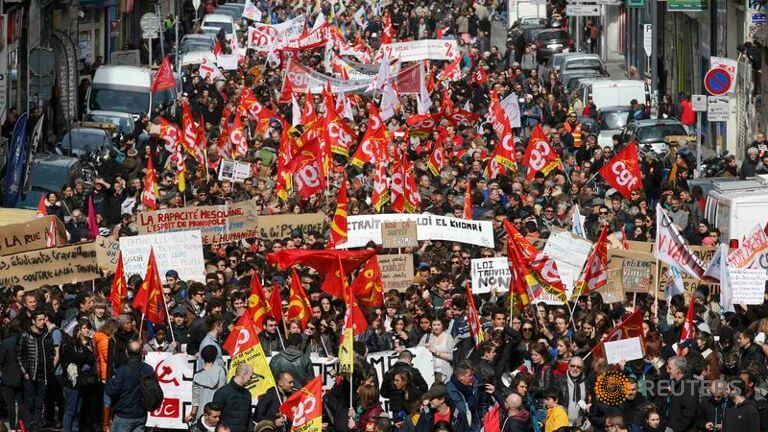by Massimo D´Antoni
December 4th was a great day in Italy. We hoped such an outcome, but did not expect it. When we saw so much turnout by voters we were not sure how to interpret it, because the media and the government had claimed that more voters would result in a higher percentage of “yes” to the constitutional reform. Well, it was the other way round. An unprecedented (for a referendum) participation rate brought to a clear rejection of the reform proposal, and of the government.
Let me remind the line-ups: against the reform were the populist Five Stars movement, the xenophobic North League, Berlusconi’s right and the Left, plus the minority of the Democratic Party lead by former leaders Bersani and D’Alema. In favour of the reform was the government, i.e. Renzi’s Democratic Party (except the former leaders Bersani and D’Alema, who campaigned for the No) with its center-right allied party NCD. However, the actual support for the reform was expected to be a bit larger than this, because many of Berlusconi’s supporters were in favour of the reform (Berlusconi himself chose not to be involved in the campaign until the last few days). Additionally, the employers’ association Confindustria was actively involved for Yes, while the main union CGIL declared its No. A number of foreign big names (Obama, Merkel and Schäuble, and the leaders of European socialist parties) openly supported Renzi.
Moreover, Renzi put all the weight of its government on the campaign. The Yes front was able to obtain much more public funding than the No front, and most media (all public televisions, the main newspapers) were more or less openly for the reform. Typical anti-establishment arguments were used by Renzi, such as the idea that with the reform the number of MPs would be reduced, along with the “cost of politics”. This made us uncertain whether he would be able to attract the anti-estrablishment vote that made the success of Brexit and Trump.
Finally, Renzi declared that he would resign in case of a No, and this scared the middle class, especially pensioners, who were afraid of financial turmoil and of the possible takeover of populist euro-critical parties.
As to the content of the reform, it is worthwhile to mention that it included some provisions that, according to a number of lawyers, would determine a further transfer of sovereignty to the EU, possibly making it impossible to recede from the Union. In the text accompanying the constitutional law it was said explicitly that the reform was aimed at adapting the constitution to the economic governance of the EU. The anti-EU card was played loudly by the Northern League; it wasn’t at the center of the debate, but it was implicit in many discussions.
The end is known: The No won by a landslide and at midnight Renzi resigned.
The reason why I’m particularly happy is that, along with a vote against the government, Italians clearly said they consider their constitution important and do not accept it is so easily changed. It was remarkable that this was the “official” (though maybe not completely sincere) position of right wing parties too. Hopefully, this will make future attempts at changing it more difficult.
What is going to happen now?
The situation is very uncertain. There are several possible scenarios. First of all let me emphasize that in the parliament the government parties still have a majority, and no majority is possible without Renzi´s Democratic Party. So it is up to them to suggest a solution, or at least to accept it.
Second, it is not possible to vote at the moment. Let me explain why: the new electoral law (a two-round system giving the party winning the second round a majority of seats in the lower house) is useless now that the upper house hasn’t been suppressed, as the latter is elected with a different (proportional) law.
Therefore, the new government will propose a new electoral law, so that the country can go to elections the next spring or, in the likely case it takes more time, at the end of the legislature in the spring 2018.
However, we expect that the constitutional court deals with the new electoral law within few weeks. There are chances that the law is declared unconstitutional and we end up with a proportional rule in both houses. This would allow us to vote soon, which is what the opposition parties ask, in particular the Five Stars.
This is a crucial variable to understand what will happen in the next months, and what will be the strategy of different parties.
What will happen at the European level, it is not clear yet. Probably the EU Commission is scared by what happened, and will be soft on the new government. On the other hand the EcoFin made it clear yet, that Italy does not respect the fiscal compact (in particular, there’s a deviation of 1.1% with respect to the MTO) and it is likely that they will try to use this (and the risk of a banking crisis) to condition the composition and political direction of the new government. We’ll see.
All in all, the situation is open and fluid. However, now everyone knows that Italians are not likely to accept austerity any longer, and that they are not easily scared by the prospects of a financial crisis. This is particularly true of the young, who apparently were the age group with the highest percentage of “No”.











